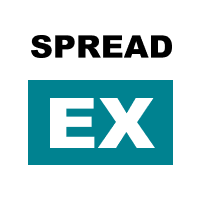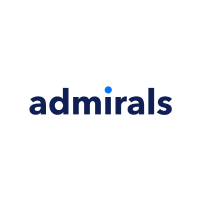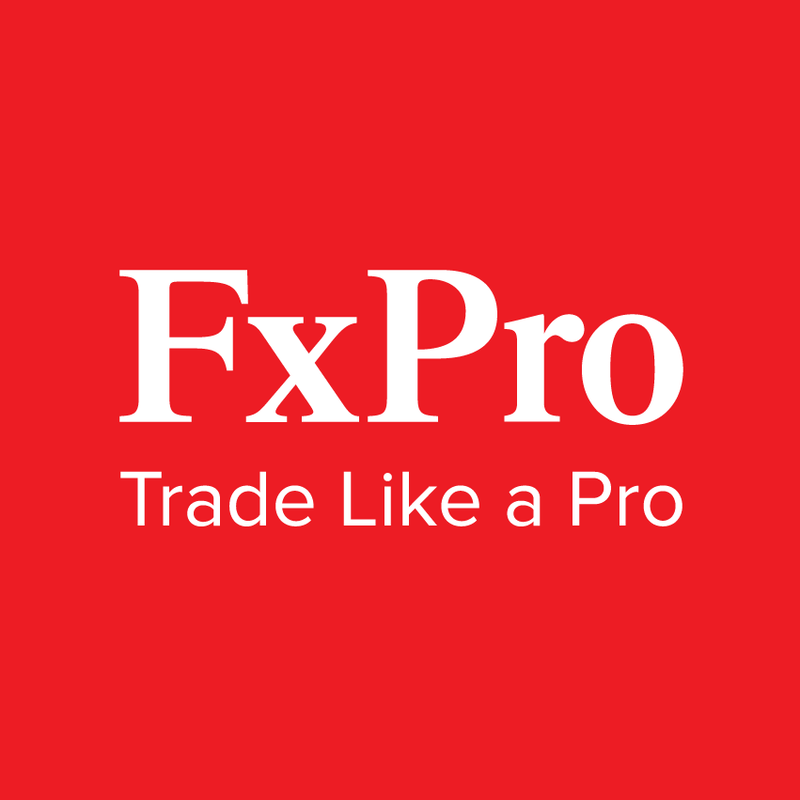Review our top 10 list of the most trustworthy and regulated CFD brokers in the UAE. We tested with real money accounts and compared their key criteria.
Choosing a CFD broker in the UAE can be challenging, as there are many options to consider. Finding a broker that is both safe and matches your investment goals requires careful research and consideration.
Evaluating brokers, comparing their features, and ensuring they are properly regulated are important steps to ensure you select a trustworthy and high-quality platform.
To make it simple to choose a CFD broker, we selected a list of the top 10 brokers and what types of trading they are best for, followed by feature comparisons, reviews and frequently asked questions.
Best CFD brokers in UAE
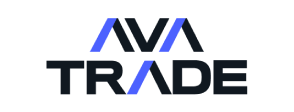 1
1AvaTrade 4.9 Your capital is at risk.
Best for forex and CFD trading beginners, great research tools, fast account opening.
 2
2eToro 4.9 Your capital is at risk.
Best for beginners. Great trading fees. Social trading. Copy trading.
 3
3Interactive Brokers 4.9 Your capital is at risk.
Ideal for professional traders and active investors, excellent for stocks and ETFs.
 6
6ActivTrades 4.3 Your capital is at risk.
Best for CFD trading alongside forex, competitive fees, and excellent mobile app.
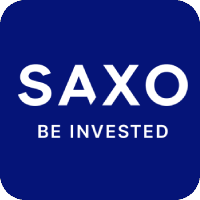 7
7Saxo Bank 4.3 Your capital is at risk.
Best for high-volume forex trading, access to diverse products.
 8
8Capital.com 4.2 Your capital is at risk.
Best for AI-powered trading tools, forex education, and fast account opening.
Safety and regulation overview in UAE
The UAE has a robust regulatory framework to ensure fairness, transparency, and investor protection in stock trading, creating a secure environment for investors. Key regulatory bodies include:
Securities and Commodities Authority (SCA): The SCA is the primary regulatory body for securities trading in the UAE. It oversees stock exchanges, brokers, and investment funds, ensuring compliance with local laws and protecting investors from fraud. The SCA mandates brokers to maintain high operational and reporting standards.
Dubai Financial Services Authority (DFSA): The DFSA regulates financial services in the Dubai International Financial Centre (DIFC). It ensures that brokers and financial institutions adhere to stringent standards for transparency, risk management, and investor protection.
Abu Dhabi Global Market (ADGM) Financial Services Regulatory Authority (FSRA): The FSRA governs financial activities within the ADGM, providing a robust framework for stock trading and investment services. It emphasizes market integrity and investor protection.
Central bank of the UAE: The Central Bank regulates banking and financial activities to maintain the overall stability of the UAE financial system. It also plays a role in ensuring that brokers operating in the UAE comply with capital adequacy and anti-money laundering regulations.
Investor protection mechanisms: While the UAE does not have an investor protection fund like the SIPC in the U.S., regulations under the SCA, DFSA, and FSRA ensure client funds are segregated from brokers’ operational funds, reducing the risk of mismanagement.
Tier-1 International Regulators
For UAE investors considering international brokers, working with entities regulated by Tier-1 regulators ensures additional security and transparency. Examples include:
- Securities and Exchange Commission (SEC) (USA): Sets rigorous standards for financial transparency and investor protection, making it a trusted regulator for brokers offering services globally.
- Financial Conduct Authority (FCA) (UK): Enforces stringent rules for client fund segregation, market practices, and operational integrity.
- Australian Securities and Investments Commission (ASIC): Ensures high standards of operational transparency and investor safeguards for brokers.
Cyprus Securities and Exchange Commission (CySEC): Commonly regulates international brokers serving UAE clients, with protections like the Investor Compensation Fund.
Safety and regulation comparison for top brokers
Here are some key areas that determine how trustworthy a broker is: who they’re top tier regulators are, investor protection they provide, and if they have any history of misconduct, or scandals. Take a look at the table below where we break down this information for you.
| Broker Name | ||
|---|---|---|
| AvaTrade | ||
| eToro | ||
| Interactive Brokers | ||
| Pepperstone | ||
| Spreadex | ||
| ActivTrades | ||
| Saxo Bank | ||
| Capital.com | ||
| Admirals | ||
| FXPro |
Fees compared
Fees of selected platforms are compared in the table below. For commission-free trading, Capital.com and AvaTrade are excellent options with competitive spreads, but Pepperstone stands out for its tight spreads and low commissions.
| Broker Name | ||
|---|---|---|
| AvaTrade | ||
| eToro | ||
| Interactive Brokers | ||
| Pepperstone | ||
| Spreadex | ||
| ActivTrades | ||
| Saxo Bank | ||
| Capital.com | ||
| Admirals | ||
| FXPro |
Non-trading fees compared
Non-trading fees such as account, deposit and withdrawal fees are compared in the table below. AVAtrade and Interactive Brokers stand out, as they don’t charge deposit, withdrawal, or inactivity fees, making them excellent options for cost-conscious traders.
| Broker Name | ||
|---|---|---|
| AvaTrade | ||
| eToro | ||
| Interactive Brokers | ||
| Pepperstone | ||
| Spreadex | ||
| ActivTrades | ||
| Saxo Bank | ||
| Capital.com | ||
| Admirals | ||
| FXPro |
Minimum deposit, deposit methods and account opening compared
Minimum deposit, deposit method, how fast it takes to open an account, and other useful information of selected platforms are compared in the table below. Interactive Brokers has a $0 minimum deposit requirement making it easy to set up a new account to start trading.
| Broker Name | ||
|---|---|---|
| AvaTrade | ||
| eToro | ||
| Interactive Brokers | ||
| Pepperstone | ||
| Spreadex | ||
| ActivTrades | ||
| Saxo Bank | ||
| Capital.com | ||
| Admirals | ||
| FXPro |
Mobile, desktop and web trading platforms compared
Trading platforms are compared in the table below. Interactive Brokers had the most intuitive and comprehensive trading platform we tested, and all brokers have access to market analysis and research for those looking to improve their knowledge on trading strategy or theory.
| Broker Name | ||
|---|---|---|
| AvaTrade | ||
| eToro | ||
| Interactive Brokers | ||
| Pepperstone | ||
| Spreadex | ||
| ActivTrades | ||
| Saxo Bank | ||
| Capital.com | ||
| Admirals | ||
| FXPro |
Product selection, markets and financial assets compared
Available financial products are compared in the table below. AvaTrade has access to 1000+ CFD products to trade across many different markets, as do most of the brokers we hand picked.
| Broker Name | ||
|---|---|---|
| AvaTrade | ||
| eToro | ||
| Interactive Brokers | ||
| Pepperstone | ||
| Spreadex | ||
| ActivTrades | ||
| Saxo Bank | ||
| Capital.com | ||
| Admirals | ||
| FXPro |
User base of top online brokers in UAE compared
The number of clients per broker are compared in the table below. eToro holds the top spot for most users at 35 million.
| Broker Name | |
|---|---|
| AvaTrade | |
| eToro | |
| Interactive Brokers | |
| Pepperstone | |
| Spreadex | |
| ActivTrades | |
| Saxo Bank | |
| Capital.com | |
| Admirals | |
| FXPro |
Top CFD brokers in UAE reviewed
1. AvaTrade – Best CFD Broker in UAE Overall. Great research tools. Fast account opening.
CFD Commission Fee: No (spread-based); $0.02/share (stocks). Demo Account: Yes.
Key points:
- Specializes in CFD trading on forex, stocks, indices, commodities, and cryptocurrencies, offering access to over 1,000 financial instruments
- Regulated by the Abu Dhabi Global Market (ADGM) under the Financial Services Regulatory Authority (FSRA), ensuring compliance with UAE regulations
- Provides access to advanced platforms: MetaTrader 4 (MT4), MetaTrader 5 (MT5), and the proprietary AvaTradeGO mobile app
- Offers Sharia-compliant Islamic accounts, catering to observant Muslim traders with interest-free trading options.
- Competitive spreads starting from 0.9 pips, zero commissions on CFD trades, and fast account opening for UAE clients
Pros:
- Regulated by the ADGM and globally by other Tier-1 authorities, ensuring a secure trading environment
- User-friendly AvaTradeGO platform with robust tools for CFD trading
- Sharia-compliant Islamic accounts for Muslim traders
- Competitive spreads and zero commission on CFDs, making it cost-effective
- Extensive educational resources and market insights tailored to traders of all levels
Cons:
- No AED support for deposits or withdrawals, which may result in currency conversion fees
- Inactivity fees charged after three months of non-use
- Limited customization tools for advanced CFD traders compared to specialized platforms
71% of retail CFD accounts lose money
2. eToro – Best for social and copy trading, competitive forex spreads, and user-friendly platform
Min Deposit: $100
S&P 500 CFD spread 0.9
Stock CFD Yes
Islamic Account Yes
61% of retail investor accounts lose money when trading CFDs with this provider. You should consider whether you can afford to take the high risk of losing your money.
CFD Commission Fee: No (spread-based). Demo Account: Yes.
Key Points:
- Offers CFD trading on forex, stocks, indices, commodities, and cryptocurrencies, with access to over 2,000 financial instruments
- Regulated by the Abu Dhabi Global Market (ADGM) under the Financial Services Regulatory Authority (FSRA), ensuring compliance for UAE-based clients
- Known for its social and copy trading features, allowing users to replicate strategies of successful traders
- Provides Sharia-compliant Islamic accounts, designed for Muslim traders with interest-free trading options
- Competitive spreads starting from 1.0 pips on forex CFDs, with no additional commission on trades
Pros:
- Regulated by ADGM-FSRA and other Tier-1 authorities, ensuring a secure trading environment
- Innovative social trading platform, ideal for beginners learning from experienced traders
- Sharia-compliant Islamic accounts available for observant Muslim traders
- User-friendly mobile app and web-based platform with a focus on simplicity
- Access to multiple asset classes, making it a versatile choice for CFD trading
Cons:
- Limited advanced tools for professional forex traders seeking highly technical features
- No AED support for deposits and withdrawals, leading to currency conversion fees
- Higher-than-average fees on non-trading activities, such as withdrawals and inactivity
61% of retail investor accounts lose money when trading CFDs with this provider. You should consider whether you can afford to take the high risk of losing your money.
3. Interactive Brokers – Best for advanced traders. Low trading fees. Choice of trading platforms.
CFD Commission Fee: No (indices); 0.05% (stocks). Demo Account: Yes.
Key points:
- Offers CFD trading alongside a wide range of financial instruments, including forex, stocks, ETFs, options, futures, and bonds, with access to over 100 markets globally
- Regulated in the UAE through its Dubai Financial Services Authority (DFSA) license, providing local compliance and oversight
- Known for its professional-grade trading tools, including Trader Workstation (TWS) and IBKR Mobile, ideal for experienced CFD traders
- No Sharia-compliant Islamic accounts, which might limit its appeal to Muslim traders
- Competitive spreads starting from 0.2 pips on forex CFDs, with low commission-based pricing for CFD and forex trades
Pros:
- Regulated by DFSA, ensuring a secure trading environment for UAE clients
- Access to a wide range of global CFDs, including forex, stocks, indices, and commodities
- Low trading fees, including tight spreads and minimal commissions
- Advanced trading platforms like TWS, with robust tools for technical analysis and algorithmic trading
- Multi-currency accounts supporting AED, reducing currency conversion fees for UAE traders
Cons:
- No Sharia-compliant Islamic account options, limiting its suitability for observant Muslim traders
- Platform complexity may overwhelm beginners, making it more suitable for professional and experienced CFD traders
- Limited Arabic-language support, primarily focused on English-speaking clients
63.3% of retail investor accounts lose money when trading CFDs with IBKR.
4. Pepperstone – Best trading fees. Great for algorithmic trading. Great for mobile trading.
CFD Commission Fee: $7/lot (forex); $0.02/share (stocks). Demo Account: Yes.
Key points:
- Specializes in CFD trading, offering access to forex, indices, commodities, shares, and ETFs with competitive spreads starting from 0.1 pips
- Regulated by the Dubai Financial Services Authority (DFSA), ensuring compliance with UAE financial standards
- Supports advanced trading platforms, including MetaTrader 4 (MT4), MetaTrader 5 (MT5), and cTrader, ideal for both beginner and professional CFD traders
- Provides Sharia-compliant Islamic accounts, catering to Muslim traders with interest-free trading options
- Focuses on fast execution speeds and low latency, making it suitable for scalping and high-frequency trading
Pros:
- Tight spreads starting from 0.1 pips on major forex CFDs like EUR/USD
- Access to advanced trading platforms (MT4, MT5, and cTrader) with support for algorithmic trading
- Islamic accounts available for interest-free trading
- Regulated by DFSA, ensuring a secure trading environment for UAE clients
- Offers extensive educational resources and market research for CFD traders
Cons:
- Limited multi-asset offerings compared to other brokers; focuses heavily on forex and CFDs
- No AED support for deposits or withdrawals, potentially leading to currency conversion fees
- Customer support is primarily in English, with limited Arabic-language options
74-89% of retail CFD accounts lose money
5. Spreadex – Best for web platform. Helpful customer support. Great research tools.

Min Deposit: $0
S&P 500 CFD spread 0.4
Stock CFD Yes
Islamic Account No
Spread bets and CFDs are complex instruments and come with a high risk of losing money rapidly due to leverage. 65% of retail investors lose money when trading spread bets and CFDs with this provider. You should consider whether you understand how spread bets and CFDs work and whether you can afford to take the high risk of losing your money.
CFD Commission Fee: No (forex/index); 0.15% min £3.5 (stocks). Demo Account: Yes.
Key points:
- Specializes in CFD trading and spread betting, offering access to forex, indices, commodities, and shares
- Regulated by the Financial Conduct Authority (FCA), ensuring compliance with international financial standards
- Provides a proprietary web-based and mobile trading platform tailored for spread betting and CFD trading
- Offers negative balance protection, safeguarding traders from losses exceeding their deposits
- Focuses on low spreads and flexible leverage options, making it appealing for casual and intermediate CFD traders
Pros:
- Tight spreads on forex CFDs, starting from 0.6 pips on major pairs
- Proprietary trading platform with real-time price alerts and customizable charting tools
- No minimum deposit requirement, making it accessible for beginner traders
- Negative balance protection ensures risk management for leveraged positions
- Spread betting option available for tax-efficient trading in certain jurisdictions
Cons:
- Not directly regulated in the UAE by DFSA or ADGM
- No Sharia-compliant Islamic accounts, limiting appeal for Muslim traders
- Limited support for multi-asset trading compared to other brokers
- No AED support for deposits or withdrawals, potentially incurring currency conversion fees
Spread bets and CFDs are complex instruments and come with a high risk of losing money rapidly due to leverage. 65% of retail investors lose money when trading spread bets and CFDs with this provider. You should consider whether you understand how spread bets and CFDs work and whether you can afford to take the high risk of losing your money.
6. ActivTrades – Best choice of trading platforms. Low trading fees. Fast account opening.

Min Deposit: $0
S&P 500 CFD spread 1.5
Stock CFD Yes
Islamic Account Yes
CFDs are complex instruments and come with a high risk of losing money rapidly due to leverage. 83% of retail investor accounts lose money when trading CFDs with this provider. You should consider whether you understand how CFDs work and whether you can afford to take the high risk of losing your money.
CFD Commission Fee: No (forex); $0.02/share (stocks). Demo Account: Yes.
Key points:
- Specializes in CFD trading, offering access to a wide range of financial instruments, including forex, indices, commodities, stocks, and ETFs
- Regulated by the Financial Conduct Authority (FCA) (UK) and other trusted authorities, ensuring a secure trading environment
- Provides advanced trading platforms: MetaTrader 4 (MT4), MetaTrader 5 (MT5), and the proprietary ActivTrader platform
- Offers Sharia-compliant Islamic accounts, catering to Muslim traders with interest-free trading options
- Focuses on competitive spreads and fast trade execution, appealing to both beginner and experienced CFD traders
Pros:
- Tight spreads starting from 0.5 pips on major forex pairs
- Advanced trading platforms, including proprietary ActivTrader with risk management tools
- Sharia-compliant Islamic accounts available for interest-free trading
- Comprehensive educational resources and market insights for informed trading
- Negative balance protection ensures risk management for leveraged trades
Cons:
- Not directly regulated in the UAE under DFSA or ADGM
- No AED support for deposits or withdrawals, leading to conversion fees
- Limited product range compared to some competitors, focusing heavily on CFDs
CFDs are complex instruments and come with a high risk of losing money rapidly due to leverage. 83% of retail investor accounts lose money when trading CFDs with this provider. You should consider whether you understand how CFDs work and whether you can afford to take the high risk of losing your money.
7. Saxo Bank – Best for Professional traders. Great trading platform. Outstanding research tools.
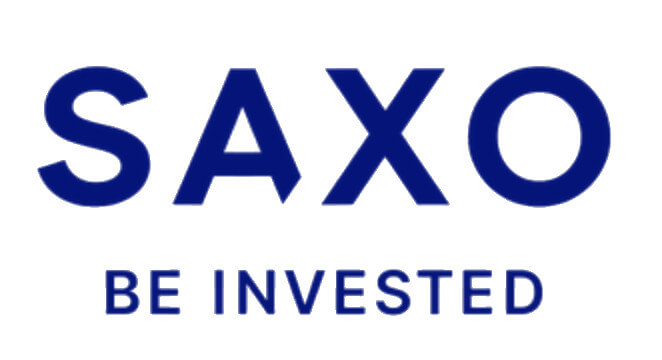
Min Deposit: $0
S&P 500 CFD spread 0.5
Stock CFD Yes
Islamic Account No
69% of retail investor accounts lose money when trading CFDs with this provider.
CFD Commission Fee: No (indices); 0.2% min €20 (stocks). Demo Account: Yes.
Key points:
- Offers CFD trading on forex, indices, commodities, and stocks, with access to over 9,000 instruments globally
- Regulated by DFSA (Dubai Financial Services Authority), ensuring compliance and transparency for UAE clients
- Advanced platforms like SaxoTraderGO and SaxoTraderPRO provide robust tools for technical analysis and automated trading
- Competitive spreads on major indices and forex pairs, suitable for scalping and intraday strategies
- Supports professional-grade research tools for informed CFD trading decisions
Pros:
- Access to a wide range of CFDs across global markets, including forex, indices, and commodities
- Professional platforms with customizable charts and advanced risk management tools
- Regulated by DFSA, ensuring a secure trading environment for UAE-based CFD traders
- Low spreads on major forex pairs and indices, appealing to cost-conscious traders
- Negative balance protection ensures clients cannot lose more than their deposited amount
Cons:
- High minimum deposit requirement ($5,000) may deter beginner traders
- Complex fee structure can be overwhelming for less experienced traders
- No AED support for deposits or withdrawals, resulting in potential currency conversion costs
69% of retail investor accounts lose money when trading CFDs with this provider.
8. Capital.com – Best for mobile trading. Great customer support. Very good research tools.

Min Deposit: 20 USD/EUR/GBP or 80 AED (bank cards)
S&P 500 CFD spread 0.8
Stock CFD Yes
Islamic Account No
CFD trading carries risk. Capital.com is regulated by the Securities and Commodities Authority.
CFD Commission Fee: No (spread-based). Demo Account: Yes.
Key points:
- Specializes in CFD trading across forex, stocks, indices, commodities, and cryptocurrencies, with access to over 6,000 financial instruments
- Not directly regulated in the UAE, but operates globally under FCA (UK), ASIC (Australia), CySEC (Cyprus), and NBRB (Belarus)
- Offers a proprietary AI-powered trading platform designed to simplify trading with personalized insights and risk management tools
- No Sharia-compliant Islamic accounts, which may limit its appeal for observant Muslim traders
- Focuses on tight spreads, zero commissions, and user-friendly interfaces, making it ideal for beginner and intermediate traders
Pros:
- Access to 6,000+ CFDs across a diverse range of asset classes
- AI-powered tools for personalized insights and risk management
- No commission fees on trades and no hidden costs
- User-friendly platform with integrated trading education resources for beginners
- Low minimum deposit requirement of $20, making it highly accessible
Cons:
- Not directly regulated by UAE authorities such as DFSA or ADGM
- No Sharia-compliant Islamic account options, which could deter Muslim traders
- Limited support for advanced trading tools sought by professionals
- No AED support for deposits or withdrawals, leading to currency conversion fees
CFD trading carries risk. Capital.com is regulated by the Securities and Commodities Authority.
9. Admirals – Best for algorithmic traders. Low trading fees. Great order execution.
CFD Commission Fee: No (forex); $0.02/share min $1 (stocks). Demo Account: Yes.
Key points:
- Offers CFD trading on forex, stocks, indices, commodities, and cryptocurrencies, providing access to over 8,000 financial instruments
- Not directly regulated in the UAE, but operates under FCA (UK), ASIC (Australia), CySEC (Cyprus), and other global authorities
- Supports industry-standard platforms MetaTrader 4 (MT4) and MetaTrader 5 (MT5), alongside its proprietary Admirals trading platform designed for simplicity
- Sharia-compliant Islamic accounts are available, catering to Muslim traders
- Competitive spreads, advanced trading tools, and extensive educational resources make it suitable for beginner and intermediate traders
Pros:
- Access to 8,000+ CFDs across multiple asset classes, including forex and commodities
- Supports MetaTrader platforms with advanced features like algorithmic trading and custom indicators
- Proprietary platform with a streamlined user interface designed for ease of use
- Sharia-compliant Islamic accounts, offering interest-free options for Muslim traders
- Strong educational resources and market analysis for informed trading
Cons:
- Not directly regulated by UAE authorities such as DFSA or ADGM
- No AED support for deposits or withdrawals, leading to potential currency conversion fees
- Proprietary platform may lack advanced tools preferred by professional traders
- Spreads are competitive but may not be the lowest compared to other top-tier brokers
77% of retail CFD accounts lose money
10. FXPro – Best customer service. Easy account opening. Great research tools.
CFD Commission Fee: $35/round turn (forex). Demo Account: Yes.
Key points:
- Specializes in forex and CFD trading on stocks, indices, commodities, and cryptocurrencies, offering access to over 70 currency pairs and 2,100+ CFDs
- Regulated by DFSA (Dubai Financial Services Authority) for UAE clients, ensuring compliance with local trading standards
- Supports advanced trading platforms including MetaTrader 4 (MT4), MetaTrader 5 (MT5), cTrader, and its proprietary FXPro Edge
- Sharia-compliant Islamic accounts are available, tailored for Muslim traders
- Focused on fast execution speeds, low spreads, and a reliable trading experience suitable for both beginners and experienced traders
Pros:
- Access to a wide range of CFDs and 70+ forex pairs, including major, minor, and exotic currencies
- Supports industry-standard platforms like MT4, MT5, and cTrader, along with a customizable proprietary platform
- Sharia-compliant Islamic accounts available, offering interest-free options
- Competitive spreads starting from 0.0 pips, ideal for scalping and high-frequency trading
- Regulated by DFSA, ensuring secure and transparent trading for UAE clients
Cons:
- Not directly regulated by UAE authorities such as DFSA or ADGM
- No Sharia-compliant Islamic accounts, which might deter Muslim traders
- Focused on spread betting and CFDs; lacks diversity in asset offerings like stocks or ETFs
- No AED support for deposits or withdrawals, leading to potential currency conversion fees
75.18% of retail CFD accounts lose money
How to find the best CFD broker in the UAE
Selecting the right broker is essential for both beginner and experienced traders in the UAE. Here’s how we evaluate the best options for you:
- Safety (Regulation): When choosing a broker for CFD trading, regulation is critical. We prioritize brokers regulated by trusted authorities such as the Securities and Commodities Authority (SCA), Abu Dhabi Global Market (ADGM), and Dubai Financial Services Authority (DFSA). These local regulators ensure a secure and transparent trading environment, safeguarding UAE clients from fraud or mismanagement. Additionally, brokers regulated by Tier-1 international authorities like the FCA (UK), ASIC (Australia), or CySEC (Cyprus) provide further credibility and security for a broad range of CFDs, including forex, commodities, indices, and stocks.
- Fees: We emphasize brokers with competitive and transparent fee structures tailored to CFD trading. This includes brokers offering tight spreads, low commissions, and clear pricing policies across CFDs on multiple asset classes. Platforms minimizing currency conversion fees and withdrawal costs are especially valuable for UAE traders managing portfolios in diverse global markets. Additionally, brokers offering zero commission on CFD trades with low spreads are preferred for cost-efficient trading.
- Non-trading fees: Non-trading fees can significantly impact profits, especially for active CFD traders. We assess brokers for hidden charges like account maintenance fees, inactivity fees, or withdrawal charges. Brokers with no or minimal non-trading fees are favored, particularly those with transparent policies on deposits and withdrawals. Competitive currency exchange rates are also important for UAE traders dealing with multi-currency accounts to avoid unnecessary financial burdens.
- Deposit/withdrawal, account opening: A smooth and efficient account opening process is essential for CFD traders. We prioritize brokers offering fast onboarding, accepting local payment methods like UAE bank transfers, credit cards, and e-wallets. Platforms supporting AED deposits are ideal, reducing conversion fees. Quick and cost-effective deposit and withdrawal processes further enhance the user experience, ensuring that traders can fund and access their accounts with minimal hassle.
- Mobile app/trading platforms: High-quality, intuitive trading platforms are critical for successful CFD trading. We assess brokers based on the functionality and reliability of their mobile and desktop platforms. The best platforms offer real-time market alerts, advanced charting tools, and quick execution to accommodate fast-paced CFD trading. Support for tools like algorithmic trading, customizable interfaces, and multi-asset integration across forex, indices, stocks, and commodities provides traders in the UAE with versatility and efficiency.
Taxation for CFD trading in the UAE
Understanding tax implications is important for traders in the UAE:
- No personal income tax: The UAE does not impose personal income tax on residents. This means profits earned from CFD trading, whether from forex, indices, commodities, or stocks, are not subject to taxation, offering a significant advantage for individual traders.
- No capital gains tax: CFD profits are not categorized under capital gains tax in the UAE. This provides traders with a tax-efficient environment compared to regions where capital gains taxes apply.
- Corporate tax implications: Starting in 2023, businesses with annual profits exceeding AED 375,000 are subject to corporate tax. If CFD trading is conducted as part of a business (e.g., proprietary trading firms or managed accounts), the profits might fall under this tax regime. Consulting a tax advisor is crucial for compliance.
- Currency conversion considerations: While the UAE does not levy taxes on currency conversions, fluctuations in exchange rates when trading CFDs involving AED or international currencies can impact overall profitability. Understanding conversion costs is essential for traders managing multi-currency accounts.
- International tax obligations: UAE residents trading CFDs on global markets should be aware of tax obligations in the respective countries. For example, profits or gains may attract withholding taxes or similar charges abroad. Reviewing double taxation treaties between the UAE and other nations can help mitigate these costs.
The UAE offers a tax-free structure for individual CFD traders, making it one of the most attractive jurisdictions for retail and professional investors. However, businesses engaging in CFD trading should consult a tax advisor to ensure compliance with corporate tax laws and navigate cross-border obligations effectively.
How to start CFD trading in the UAE
Follow these simple steps to start investing and trading in the UAE:
- Choose a broker: Select a broker regulated by SCA, ADGM, or DFSA in the UAE, or a globally trusted broker offering access to CFD markets such as forex, stocks, commodities, and indices. Prioritize brokers with competitive spreads, low fees, and robust trading platforms.
- Check local requirements: If you plan to trade UAE-listed CFDs, ensure you meet any specific requirements, such as obtaining an Investor Number (NIN) for trading on local exchanges like DFM or ADX.
- Open an account: Submit necessary documents like your Emirates ID, passport, proof of address, and bank details. Many brokers in the UAE provide efficient online account registration processes tailored to local clients.
- Fund your account: Use local payment methods, such as UAE bank transfers, credit/debit cards, or e-wallets. Choose brokers that support AED transactions to minimize currency conversion fees.
- Understand CFD trading: Learn the mechanics of CFD trading, including leverage, margin, and contract specifications. Research underlying assets like forex pairs, indices, commodities, or stocks, and stay updated on market trends.
- Set your goals: Define your trading objectives, whether short-term gains or long-term portfolio diversification. Align your strategy with your risk tolerance and trading style.
- Start trading: Use your broker’s platform or mobile app to access global CFD markets. Leverage trading tools like advanced charting, technical indicators, and risk management features to make informed decisions.
- Manage risks: Use strategies like stop-loss orders, position sizing, and diversification to manage potential losses. Monitor margin levels closely, as CFDs involve leverage and higher risk.
- Monitor your trades: Regularly review your positions, assess market conditions, and adapt your trading plan as needed. Stay informed with news and market updates.
- Withdraw or reinvest: Withdraw your profits or reinvest them to grow your trading portfolio. Ensure your broker provides an easy withdrawal process with minimal fees.
Which types of trading are legal in the UAE
In the UAE, trading is regulated by authorities like the Securities and Commodities Authority (SCA), the Abu Dhabi Global Market (ADGM), and the Dubai Financial Services Authority (DFSA). These regulatory bodies ensure fairness, transparency, and investor protection. Here are the types of trading allowed in the UAE:
- Stock trading: Buying and selling shares of companies listed on UAE exchanges like the Dubai Financial Market (DFM) and the Abu Dhabi Securities Exchange (ADX), as well as international markets through approved brokers.
- Forex trading: Trading currency pairs is legal through brokers regulated by the SCA, ADGM, DFSA, or international regulators authorized to operate in the UAE.
- Derivatives trading: Trading in futures and options on regulated platforms, including commodities and financial instruments, is permitted under UAE law.
- Commodity trading: Trading physical commodities like gold, silver, and oil is legal, often conducted on platforms like the Dubai Gold and Commodities Exchange (DGCX).
- Mutual funds and bonds: Investing in mutual funds, government bonds, and corporate bonds is available through licensed brokers and financial institutions.
- Cryptocurrency trading: While not fully regulated, cryptocurrency trading is allowed under certain conditions through platforms approved by the UAE’s regulators.
It is essential to use brokers or platforms regulated by UAE authorities or internationally recognized bodies authorized to operate locally. This ensures secure, transparent, and compliant trading.
Conclusion
After analyzing and comparing the top brokers available to UAE traders across multiple categories, we have chosen AvaTrade as the best CFD broker for UAE clients in 2025.
AvaTrade stands out for its robust CFD offerings, competitive spreads, and access to global markets, including forex, commodities, and indices. Regulated by ADGM and other top-tier international authorities, AvaTrade ensures a secure and transparent trading experience. Its advanced platforms, including MetaTrader 4 and 5, combined with Sharia-compliant account options, cater to the diverse needs of UAE traders. AvaTrade’s comprehensive features and strong regulatory backing make it the ideal choice for CFD trading in 2025.
 1
1AvaTrade 4.9 Your capital is at risk.
Best for forex and CFD trading beginners, great research tools, fast account opening.
 2
2eToro 4.9 Your capital is at risk.
Best for beginners. Great trading fees. Social trading. Copy trading.
 3
3Interactive Brokers 4.9 Your capital is at risk.
Ideal for professional traders and active investors, excellent for stocks and ETFs.
 6
6ActivTrades 4.3 Your capital is at risk.
Best for CFD trading alongside forex, competitive fees, and excellent mobile app.
 7
7Saxo Bank 4.3 Your capital is at risk.
Best for high-volume forex trading, access to diverse products.
 8
8Capital.com 4.2 Your capital is at risk.
Best for AI-powered trading tools, forex education, and fast account opening.
FAQ
What is CFD trading, and how does it work?
CFD trading (Contracts for Difference) allows you to speculate on the price movement of assets like stocks, forex, indices, and commodities without owning the underlying asset. You profit from the difference between the opening and closing price of a contract. CFDs use leverage, meaning you can control a larger position with a smaller deposit, but this also increases risks.
What is an online broker?
In the UAE, an online broker is a financial service provider that allows you to buy and sell financial instruments such as stocks, ETFs, mutual funds, bonds, forex, and derivatives through an online platform or app. These brokers provide access to both local exchanges, such as the Dubai Financial Market (DFM) and Abu Dhabi Securities Exchange (ADX), and international markets, offering tools to monitor portfolios, analyze markets, and execute trades conveniently.
What is a stockbroker?
A stockbroker is a person or company that enables investors to buy and sell stocks or other investment assets. There are three main types of stockbrokers: full-service, discount, and online. A full-service stockbroker manages your money and investments on your behalf and may also offer financial advice.
A discount stockbroker allows you to choose your own investments but buys or sells them for you, and some also offer general information and recommendations to help you decide which assets to buy. An online stockbroker lets you buy and sell investment assets yourself through an online platform or a mobile app. Each type of stockbroker charges fees to cover the cost of running your investment account, buying and selling stocks, and/or trading in a foreign currency.
An online brokerage or investment platform is a website or app that allows you to buy, hold, and sell assets such as stocks, shares, and investment funds. Most providers offer access to companies across a range of industries and markets, including the US, UK, and Europe.
What should I look for when choosing a broker in the UAE?
- Regulation: Ensure the broker is licensed by UAE authorities like the Securities and Commodities Authority (SCA), Abu Dhabi Global Market (ADGM), or Dubai Financial Services Authority (DFSA).
- Fees: Look for brokers with low commissions, transparent pricing, and minimal fees for withdrawals, currency conversions, or inactivity.
- Trading platforms: Opt for brokers offering user-friendly platforms with advanced tools, mobile compatibility, and access to both UAE and international markets.
- Asset variety: Choose brokers providing a wide selection of assets, including UAE-listed stocks, global equities, ETFs, and forex.
- Customer support: Look for brokers offering responsive support in English and Arabic, with availability during UAE market hours.
How do I start CFD trading in the UAE?
To start CFD trading in the UAE:
- Select a regulated broker offering CFDs.
- Open an account and submit required documents like Emirates ID and proof of residence.
- Fund your account using supported payment methods.
- Choose an asset class and use the broker’s platform to analyze and trade CFDs.
Are UAE brokers safe?
Brokers regulated by the SCA, ADGM, or DFSA are considered safe, as they adhere to stringent operational and financial standards. International brokers regulated by Tier-1 authorities like FCA or ASIC and authorized to operate in the UAE also provide secure trading environments.
What fees should I expect when trading in the UAE?
Expect brokerage fees, account maintenance charges, currency conversion fees for international markets, and occasional withdrawal fees. Brokers with locally tailored pricing are preferable to minimize costs.
What documents do I need to trade in the UAE?
- Emirates ID or valid passport
- Proof of residence (utility bill or rental agreement)
- Bank account details
- National Investor Number (NIN) for DFM and ADX trading
Can UAE clients trade internationally?
Yes, UAE clients can trade global markets through locally regulated brokers or internationally licensed platforms authorized to operate in the UAE. Ensure the broker provides access to your desired markets and complies with local regulations.
How do I manage risks when trading from the UAE?
Use tools like stop-loss orders, diversify across sectors and markets, and stay informed about market conditions. Select brokers offering features like risk alerts and negative balance protection to safeguard your investments.
What is negative balance protection?
Negative balance protection prevents traders from losing more money than they have deposited. This is especially important for leveraged trading to protect against volatile market movements.
What are ETFs, and why invest in them?
ETFs allow you to invest in a basket of assets like stocks or commodities and trade them like stocks. They offer diversification, low costs, and ease of trading, making them attractive to UAE investors looking to access both local and international markets.
How can I ensure my online trading is secure?
Use strong passwords, enable two-factor authentication, and trade through regulated brokers with encrypted platforms. Regularly monitor your account for unauthorized activity.
What is day trading, and is it suitable for me?
Day trading involves buying and selling securities within the same trading day. It requires time, quick decision-making, and a tolerance for high risk, making it better suited for experienced traders.
What is a brokerage account, and why do I need one in the UAE?
A brokerage account allows you to trade and invest in financial instruments such as stocks, ETFs, and forex. It is essential for accessing local exchanges like DFM and ADX or international markets.
Are brokerage charges negotiable in the UAE?
Some brokers may offer negotiable fees, especially for high-volume traders or business accounts. Inquire with your broker for potential discounts or tiered pricing options.
What is margin trading, and is it available in the UAE?
Margin trading lets you borrow funds to buy more securities than you could with your available capital, amplifying potential returns and risks. It is available in the UAE through brokers authorized for leveraged trading. Ensure you understand the risks before using this feature.
Do brokers in the UAE offer sharia-compliant trading?
Many brokers in the UAE provide sharia-compliant (Islamic) accounts with no interest charges, suitable for observant Muslim traders.
Which local stocks can I trade in the UAE?
UAE traders can access stocks listed on the Dubai Financial Market (DFM), Abu Dhabi Securities Exchange (ADX), and NASDAQ Dubai.
What is the National Investor Number (NIN), and why is it important?
A National Investor Number is required for trading on DFM and ADX, and you can obtain it by registering with these exchanges. More information are available in this guide on how to buy stocks in UAE.
Do UAE residents pay taxes on stock trading?
No, UAE residents are not subject to personal income tax on trading profits. However, be aware of potential taxes when trading international stocks.
What are the most common assets traded in the UAE?
Stocks, ETFs, forex, commodities (like gold), mutual funds, and derivatives (futures and options) are commonly traded by UAE investors.
Can I trade cryptocurrencies in the UAE?
Yes, but only through authorized platforms such as eToro or brokers regulated by UAE authorities offering crypto assets.
What trading hours should I be aware of?
UAE stock markets operate Sunday to Thursday, with DFM and ADX trading hours typically from 10:00 AM to 3:00 PM UAE time.
What are the biggest stock exchanges in the UAE?
The biggest stock exchanges in UAE are listed below.
- The Dubai Financial Market, or DFM for short
- The Abu Dhabi Securities Exchange, or ADX for short
- The NASDAQ Dubai
What are the different stock brokerage accounts available in the UAE?
There 3 different stock brokerage accounts available in the UAE are listed below.
- Local stock brokers: is only available for people living in the UAE (both natives and expats). The Ras Al Khaimah Investment Authority (a UAE government agency) can be used instead.
- A UAE bank brokerage accounts: UAE bank accounts are available to both foreigners and nationals living in the UAE and allow users access to self directed trading and professional managed investing
- Online stock brokers: allows self directed trading, access to international markets and total control of investment through the same dashboard.
Can I invest in the UAE stock market as a tourist or expat?
Everyone can invest in the UAE stock market with a valid NIN number.
What is leverage, and why is it important in CFD trading?
Leverage allows you to trade positions larger than your initial capital by borrowing funds from your broker. For example, with 10:1 leverage, a $1,000 deposit lets you control a $10,000 position. While it amplifies potential profits, it also increases risk, as losses can exceed your deposit if the market moves against you.
Are CFD trading profits taxed in the UAE?
No, CFD trading profits are not subject to personal income tax in the UAE. However, international markets may impose taxes on dividends or capital gains for CFDs linked to stocks.
What are the main risks of CFD trading?
CFD trading involves risks such as:
- Leverage amplifying losses.
- Market volatility leading to rapid price changes.
- Margin calls requiring additional funds to maintain open positions.
- Potential for account losses exceeding deposits without negative balance protection.
What tools are available for CFD trading risk management?
Key tools for managing risk in CFD trading include:
- Stop-loss orders: Automatically close trades at a predetermined loss level.
- Take-profit orders: Lock in profits by closing trades when a target price is reached.
- Trailing stops: Adjust stop-loss levels as the market moves in your favor.
- Position sizing: Limit the amount of capital risked on each trade.
What is slippage in CFD trading, and how can I avoid it?
Slippage occurs when a trade is executed at a different price than expected due to market volatility or low liquidity. To minimize slippage:
- Trade during peak market hours with high liquidity.
- Use limit orders instead of market orders.
- Avoid trading during major news events when markets are highly volatile.
How do CFD brokers make money?
CFD brokers earn revenue through:
- Spreads: The difference between the bid (buy) and ask (sell) price.
- Commissions: Fees on each trade (common with low-spread accounts).
- Overnight financing: Costs for holding positions open beyond market hours.
What assets can I trade with CFDs in the UAE?
You can trade a wide range of assets with CFDs, including:
- Forex pairs: Major, minor, and exotic currencies.
- Indices: Global indices like S&P 500, FTSE 100, and Nikkei 225.
- Commodities: Gold, silver, oil, and agricultural products.
- Stocks: Shares of global companies.
- Cryptocurrencies: Bitcoin, Ethereum, and other digital assets.
How do I choose a CFD broker as a beginner?
When selecting a CFD broker as a beginner, look for:
- Regulation by trusted authorities (SCA, ADGM, DFSA).
- User-friendly platforms with demo accounts.
- Educational resources on CFD trading.
- Low fees and competitive spreads.
- Responsive customer support.
Can I trade CFDs on UAE-listed assets?
Yes, some brokers offer CFDs on UAE-listed stocks or indices like those on the Dubai Financial Market (DFM) or Abu Dhabi Securities Exchange (ADX). Verify with your broker if they provide these instruments.
Is CFD trading suitable for long-term investment?
CFD trading is generally better suited for short-term trading or speculation due to overnight financing costs for holding positions. For long-term investments, traditional asset ownership or ETFs might be more cost-effective.
What is the difference between market makers and direct market access (DMA) brokers for CFDs?
- Market makers: Set their own prices and provide liquidity, often with fixed spreads.
- DMA brokers: Provide access to live market prices and order books, typically offering variable spreads and direct trading with other market participants.
How can I practice CFD trading before using real money?
Many brokers offer demo accounts that simulate real market conditions. Use a demo account to practice trading strategies, understand leverage, and explore the broker’s platform without risking actual money.
Are CFD brokers regulated in the UAE?
Yes, brokers offering CFDs in the UAE must be regulated by local authorities like the Securities and Commodities Authority (SCA), ADGM, or DFSA. Brokers regulated by Tier-1 international regulators (FCA, ASIC) and authorized to operate in the UAE are also trustworthy.
Everything you find on Business24-7 is based on trustworthy data and impartial analysis. We combine over 11 years of financial expertise with valuable reader feedback to provide accurate insights. Learn more about our methodology.
Disclaimer
eToro is a multi-asset platform which offers both investing in stocks and cryptoassets, as well as trading CFDs.
Please note that CFDs are complex instruments and come with a high risk of losing money rapidly due to leverage. 61% of retail investor accounts lose money when trading CFDs with this provider. You should consider whether you understand how CFDs work, and whether you can afford to take the high risk of losing your money
This communication is intended for information and educational purposes only and should not be considered investment advice or investment recommendation. Past performance is not an indication of future results.
Copy Trading does not amount to investment advice. The value of your investments may go up or down. Your capital is at risk.
Crypto assets are complex and carry a high risk of volatility and loss. Trading or investing in crypto assets may not be suitable for all investors. Take 2 mins to learn more
eToro USA LLC does not offer CFDs and makes no representation and assumes no liability as to the accuracy or completeness of the content of this publication, which has been prepared by our partner utilizing publicly available non-entity specific information about eToro.




